Haran or Harran?
And have the maps in TNIV Bibles kept up? [No! ...and yes!]
See my newest post, "Keeping up with Harran" at the TNIV Truth blog.
Gen 11:3 -- Exactly What Kept the Bricks Together?
I mentioned this fact to my class and asked for a brief survey of translations for this stuff between the bricks. I received a lot of tar, one or two instances of asphalt, an isolated bitumen, and then one fellow reading from the King James Version said his translation read slime.
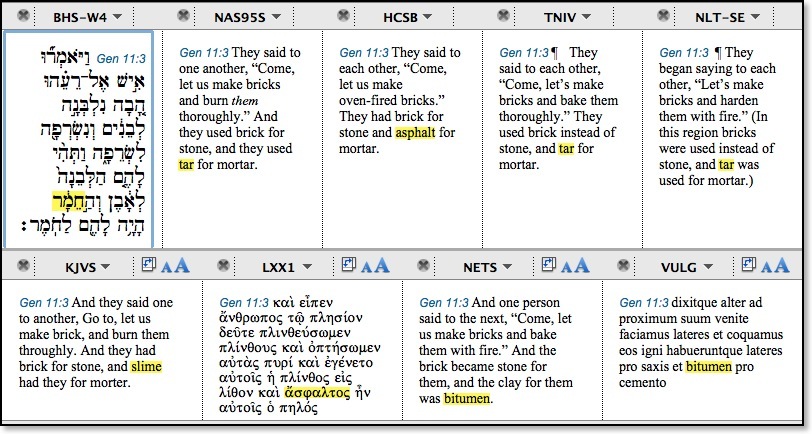
The above screenshot from Accordance displays a few major translations along with original language texts. Due to the Limitations of RapidWeaver, I'll have to transliterate, but the word in question in the Hebrew is chemar. This specific form of the word only occurs in Gen 11:3; 14:10 and Exod 2:3. It's defined in the HALOT as "bitumen, asphalt." But what exactly is that?
First, let's look at the odd man here: the KJV's use of slime. It's frankly a surprising translation to me, and not a very good one. Perhaps someone can provide insight to the KJV translators' choice for this rendering based on older definitions of the word. I wondered initially if there was any connection with the word slime to some kind of Latin meaning. But according to the American Heritage Dictionary on my MacBook, our word slime comes from the Old English slīm which is related to Dutch slijm and German Schleim ‘mucus, slime,’ Latin limus ‘mud,’ and Greek limnē ‘marsh.’ I looked in the Vulgate since the KJV translators often looked there when they were unsure about a word's meaning, but the Vulgate actually reads bitumen. Interesting.
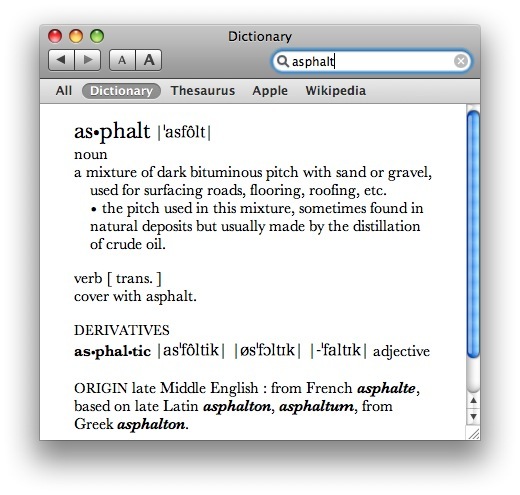
So, although it still sounds a bit odd to my ear, asphalt turns out to be an okay definition. But what about tar which so many translations use? I also associate tar with roads, and I also think of the old tar baby in the Uncle Remus stories. But what exactly is tar? Tar is defined as "a dark, thick, flammable liquid distilled from wood or coal, consisting of a mixture of hydrocarbons, resins, alcohols, and other compounds. It is used in roadmaking and for coating and preserving timber." We have that roadmaking connection to the asphalt, but there's no mention of crude oil here. Is tar a valid translation?
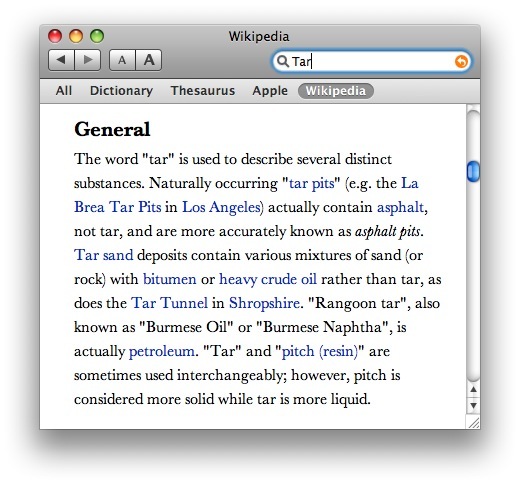
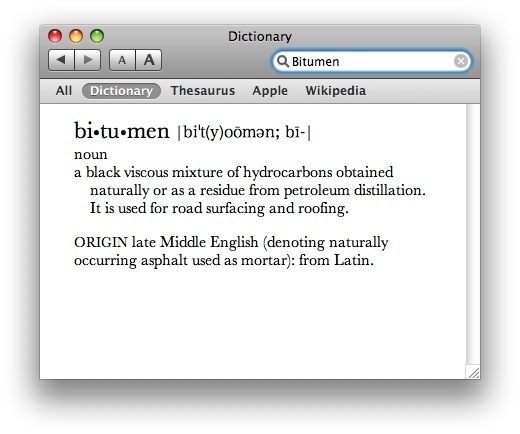
So, in the end, I believe tar, while not entirely incorrect, may not be the best rendering of chemar. Rather, bitumen or asphalt may be better choices. Bitumen is going to be a more unfamiliar word to most, I assume, but I wonder if asphalt still sounds too modern, even if it's really not?
One final point. The story of the Tower of Babel takes place, according to Gen 11:2, in the Valley of Shinar. Where exactly is that? The Anchor Bible Dictionary offers the answer:
"The meaning of Shinar is clear from the biblical references. It is the area known to the Mesopotamians as “the land of Sumer and Akkad,” corresponding to the portion of modern Iraq S[outh] of Baghdad. This meaning is confirmed by the LXX, Targum Onqelos, and the Genesis Apocryphon. All three sometimes translate “Shinar” as Babylon(ia)."
So, it's interesting that the first biblical reference to this region also refers to crude oil petroleum. It was a significant factor in life then, and it is even much more so today.
Sing it with me: "...black gold, Texas tea! Well, the first thing you know, Nimrod's a millionaire..."
The Forbidden Fruit Was Actually A Papaya
“So she took some of the fruit and ate it.
Then she gave some to her husband,
who was with her, and he ate it, too.”
(Gen 3:6 NLT)
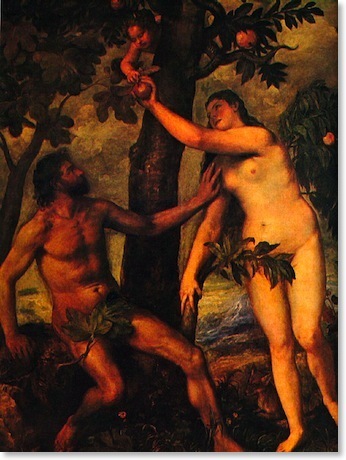
Yesterday, in our Bible study class, I taught on Genesis 3. During my preparation I came across an interesting bit of trivia--how the apple became associated with the forbidden fruit. You know what I'm talking about right? In most popular conceptions of the story, it's an apple that Adam and Eve partake of in violation of God's command, resulting in their fall from innocence and banishment from paradise. I believe I even had a Bible story book or two as a child that specifically said they ate an apple. But as soon as I could read the story for myself, I found out that nowhere is any specific fruit mentioned, let alone an apple (of course, I was also disappointed while still quite young when I couldn't find anywhere in the Bible that Jesus' cross was made from a dogwood tree). So how did an apple get connected to the story? Well it seems that the Latin word for apple is malum, while the word for evil is malus. The phonetic connection between the two words became the key to the association down through the ages. So much for keeping the doctor away...









